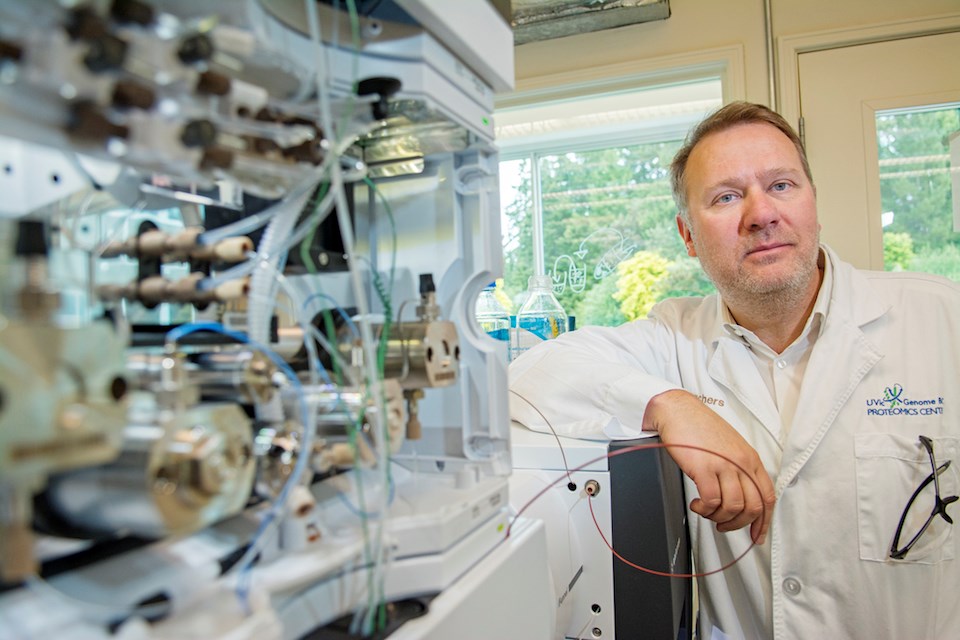It has been known for some time that a variety of genetic disorders, such as Alzheimer’s, Parkinson’s disease and cystic fibrosis, are caused by protein mutation. (Stay with me. Plain English follows.)
Proteins are built from chains of DNA, and they play a central role in the formation of all living cells. If something goes awry in their structure — if part of their DNA chain is broken or distorted — the cells affected will either die or become misshapen.
And that can lead to anything from trivial consequences to life-altering ailments, and in some cases, death. Equally concerning, these mutations can be passed on hereditarily (though some emerge spontaneously with no family history to explain them).
Finally, the point. A huge grant has been awarded to a protein research team in B.C., involving staff at the University of Victoria’s medical sciences department and at Island Health.
The project is led by two of the most eminent scientists in proteomics (as the field is known), Dr. Christoph Borchers at the University of Victoria and Dr. Andrew Penn, who studies cardiovascular disease at Island Health. They’ve been given more than $18 million to conduct this world-leading research.
So what are outcomes might we hope for? Some examples:
It had long been thought that patients with a certain type of colorectal cancer couldn’t benefit from the standard therapy. And in some cases, that’s correct.
But proteomics research has shown that so long as the protein mutation in these variants remains limited, chemotherapy can be successful. This discovery is already being applied at McGill University’s Jewish General Hospital in Montreal. But the work to make that possible was done here in Victoria.
And that leads to a more generalized understanding, namely that cancers can be sub-typed, depending on the nature of the protein mutation. Breast cancer, for example, has several variants.
All are susceptible, in differing degrees, to standard chemotherapy. But a number of targeted drugs have been designed, such as herceptin and tamoxifen, that attack the specific mutation. Basically, they shut down the cancer cells by cutting off their means of sustenance.
Penn’s work promises a simple blood test that shows if a patient has suffered a silent stroke — meaning a stroke that went unnoticed. Previously, an MRI would be needed to examine blood vessels in the brain, and those are both expensive and of limited supply. Blood tests are cheap, fast and routine.
Perhaps the most encouraging aspect of this research is that it promises treatments for ailments such as Alzheimer’s. More than half a million Canadians are currently living with this disease, and that number is expected to double within 15 years.
So far, treatments are largely ineffectual. They delay the onset of symptoms, but only to a limited extent.
However, protein research has shown that the source of Alzheimer’s is a buildup of plaque in the brain. This material consists of protein fragments that clump together and begin to interrupt signals between nerve cells. A similar malfunction might explain other neurological diseases, such as Parkinson’s.
Understanding this mechanism is the key to designing therapies that will work. It’s believed we might see some new drugs within the following decade, so rapidly is our knowledge expanding.
Yet I’m willing to bet that 95 per cent of the population has never heard of proteomics. I certainly hadn’t.
Ground-breaking research has being going on within our community, indeed almost under our noses, and most of us are entirely ignorant of it.
It must be frustrating to spend your career working on a hellishly complex problem, in the knowledge that almost no one understands what you’ve accomplished, even as it saves their lives.
We owe a huge vote of thanks to scientists such as Borchers and Penn.



